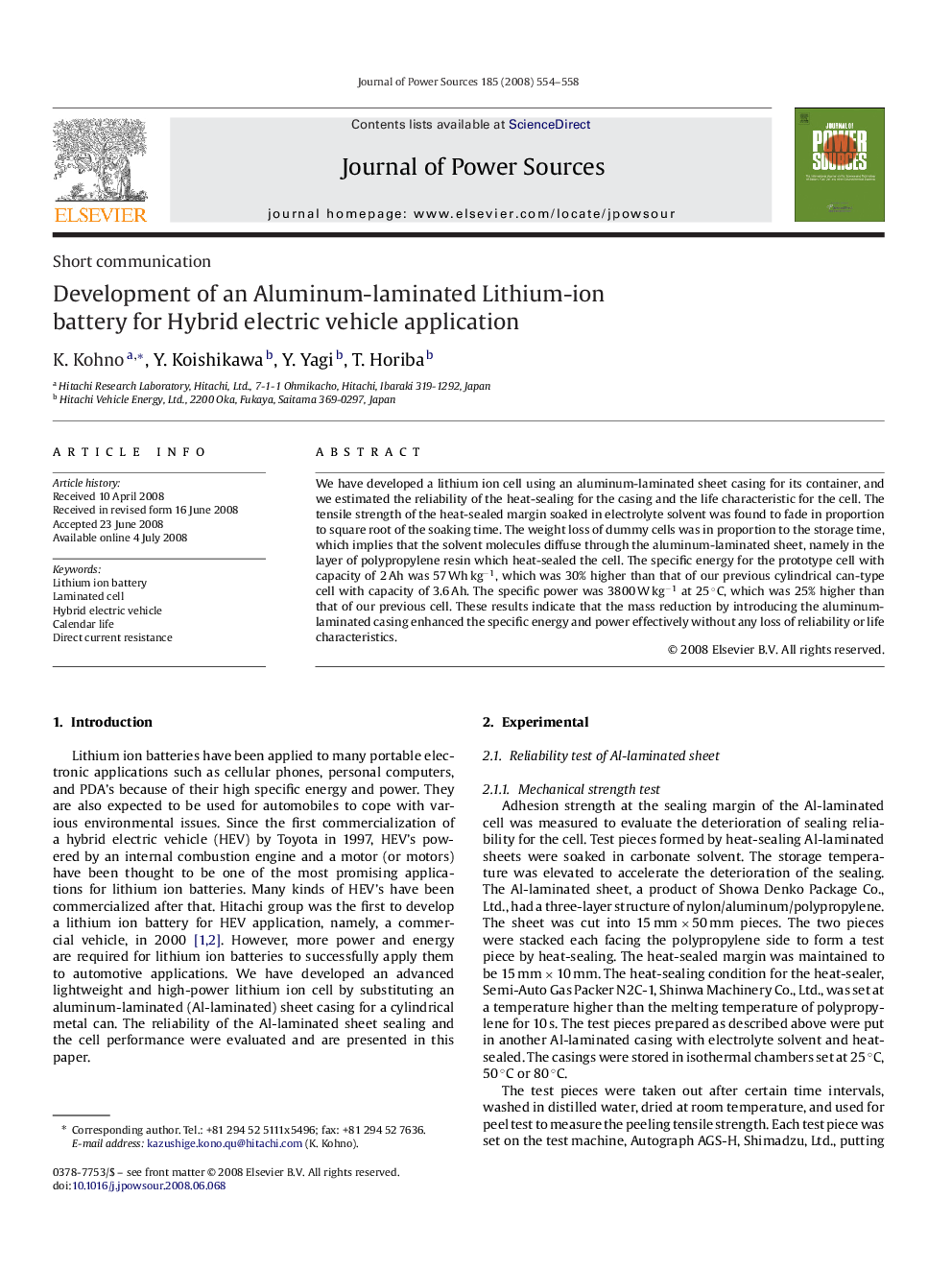| Article ID | Journal | Published Year | Pages | File Type |
|---|---|---|---|---|
| 1294448 | Journal of Power Sources | 2008 | 5 Pages |
We have developed a lithium ion cell using an aluminum-laminated sheet casing for its container, and we estimated the reliability of the heat-sealing for the casing and the life characteristic for the cell. The tensile strength of the heat-sealed margin soaked in electrolyte solvent was found to fade in proportion to square root of the soaking time. The weight loss of dummy cells was in proportion to the storage time, which implies that the solvent molecules diffuse through the aluminum-laminated sheet, namely in the layer of polypropylene resin which heat-sealed the cell. The specific energy for the prototype cell with capacity of 2 Ah was 57 Wh kg−1, which was 30% higher than that of our previous cylindrical can-type cell with capacity of 3.6 Ah. The specific power was 3800 W kg−1 at 25 °C, which was 25% higher than that of our previous cell. These results indicate that the mass reduction by introducing the aluminum-laminated casing enhanced the specific energy and power effectively without any loss of reliability or life characteristics.
